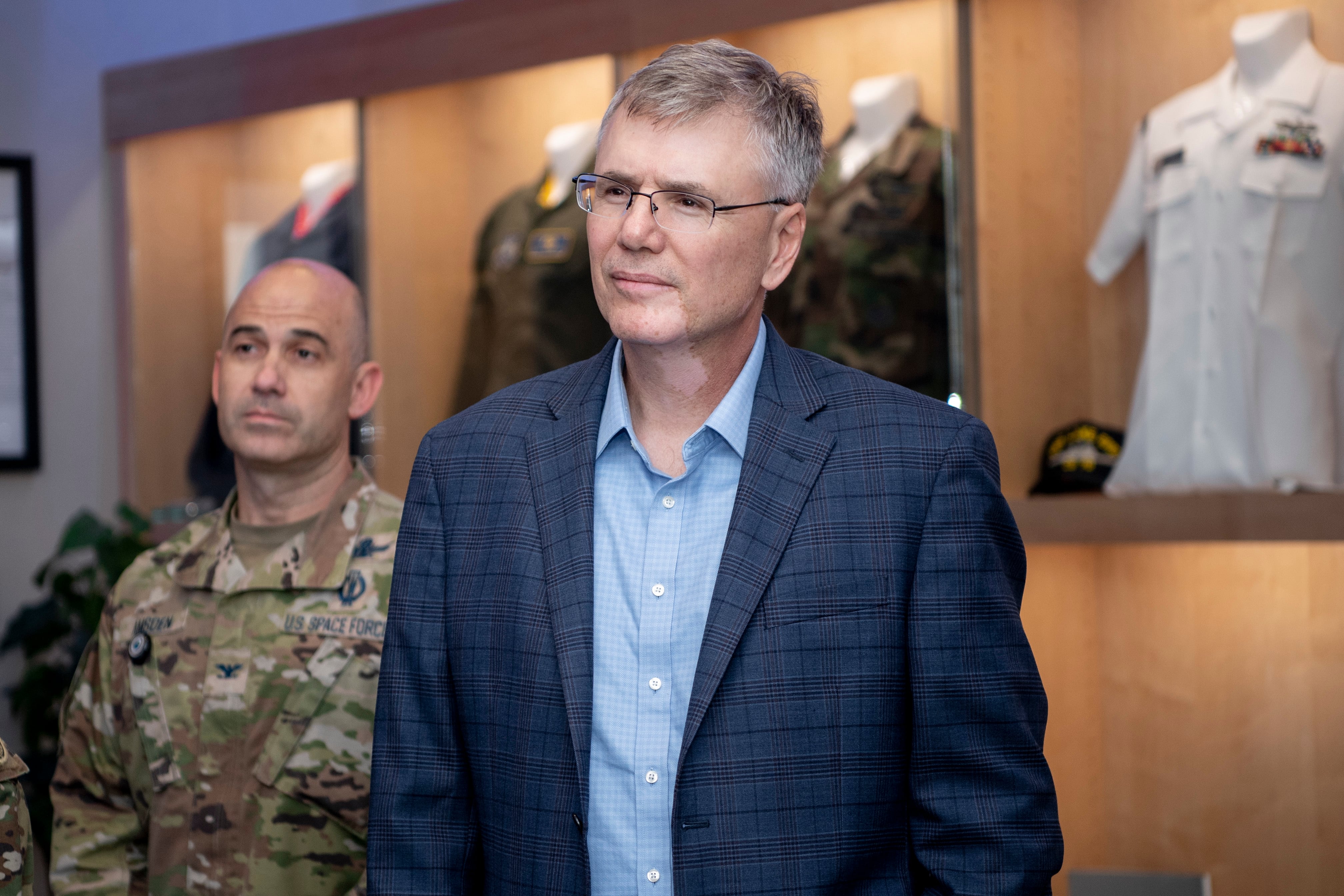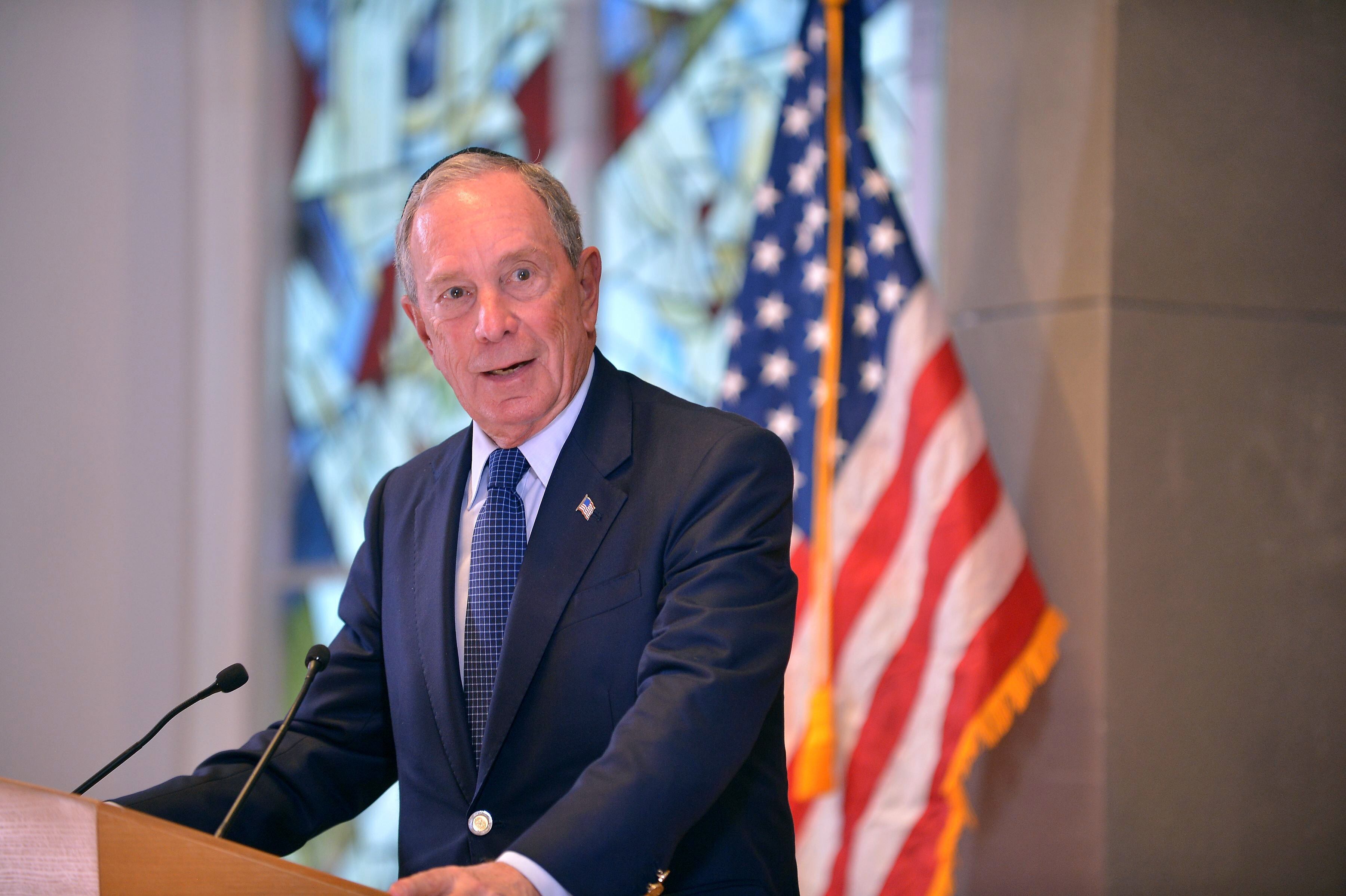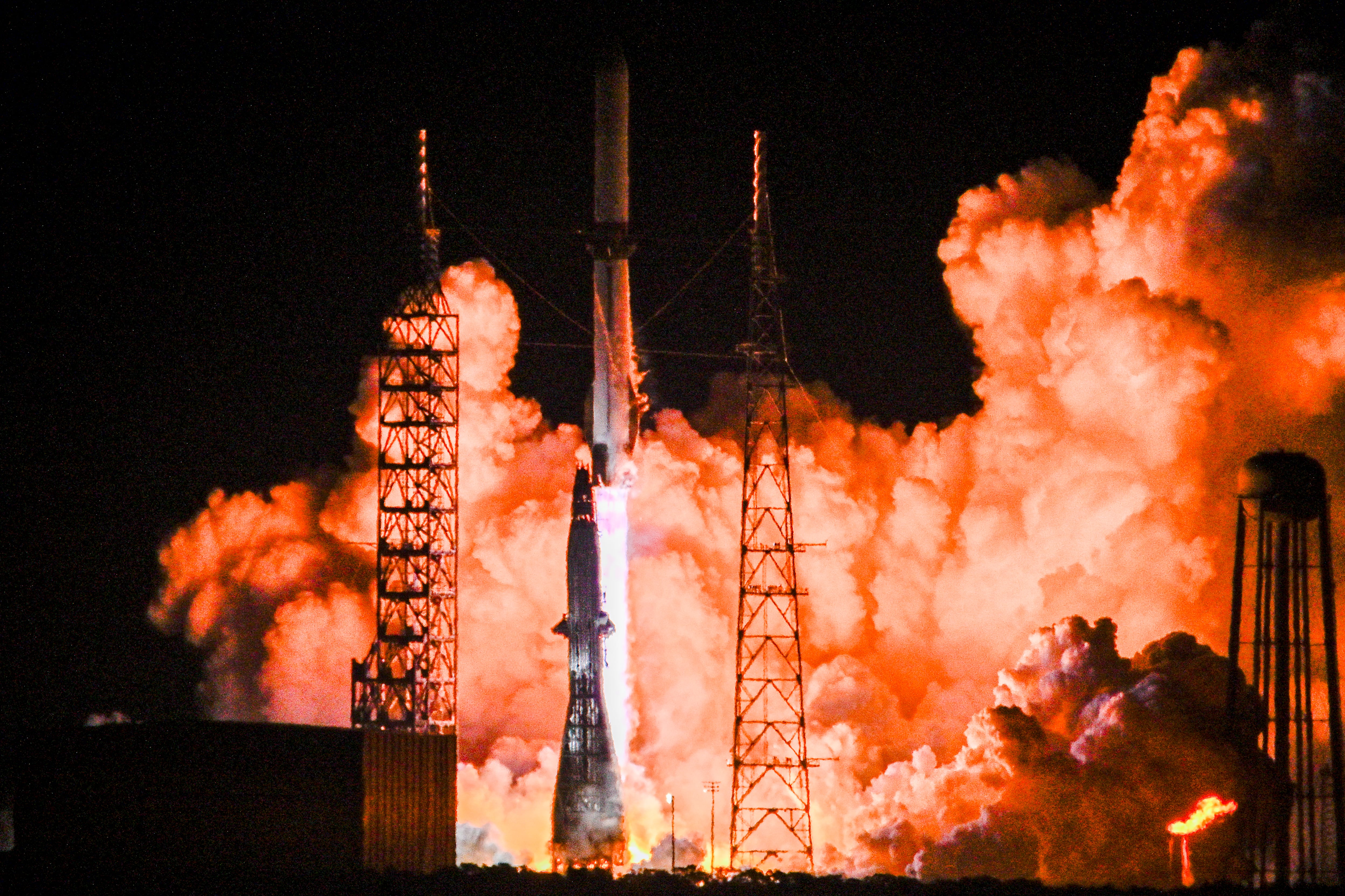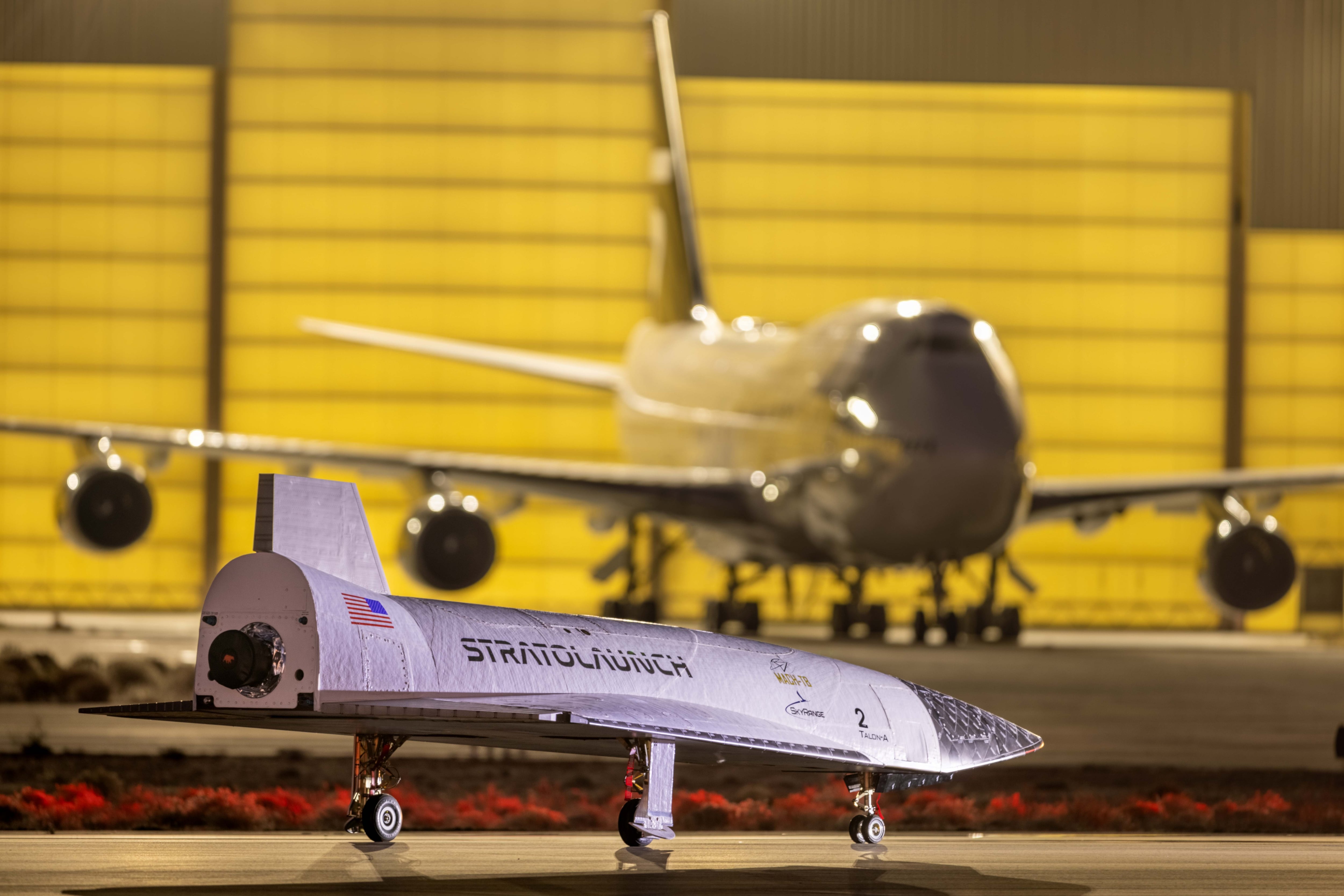Marine Corps Master Gunnery Sgt. Scott Stalker became the top enlisted leader at U.S. Space Command in August 2020, one year after the organization was resurrected in a vast overhaul of the military space enterprise. He hosted a forum on joint graduate and postgraduate military education in Colorado Springs, Colorado, Feb. 14-16.
Stalker spoke to Air Force Times on Monday for his first-ever interview in the role. This interview has been edited for length and clarity.
Q. In these first few years of standing up SPACECOM, what has gone well? What has not?
A. Occasionally, I’ll get some specific [questions] about the Space Force that I either have no authority to talk about, or no expertise in, because I’m not in that service. I spend a lot of time getting folks to understand that Space Command is a combatant command with authority to operate at 100 kilometers and above, and I work for an Army four-star. Space Force is that newest service, which organizes, trains and equips for the entirety of the joint force. It’s been an external messaging campaign to get folks to understand both the uniqueness and the differences between the two.
Folks would mistake me for the point of contact as they were going through their new uniform requirements. I haven’t seen that [confusion] play out in terms of operations.
Q. What are your top priorities for 2023?
A. As we “deter, defeat, deliver, defend,” in order for us to get there, you have to develop your people. I’m focusing on making sure that we have a deep bench. Historically, battles have been won by junior officers and junior enlisted. I try to get them to understand the larger strategic picture, so if conflict breaks out, this command is ready and is not solely reliant on a four-star or a senior E-9 to give them guidance.
We’re bringing in joint service members who have different levels of warfighting experience, operational experience — a fairly seasoned team with different perspectives. Most people will then go back to their service a little bit smarter and savvier about what Space Command does, and how space can provide support to the air, land, sea and cyber domains.
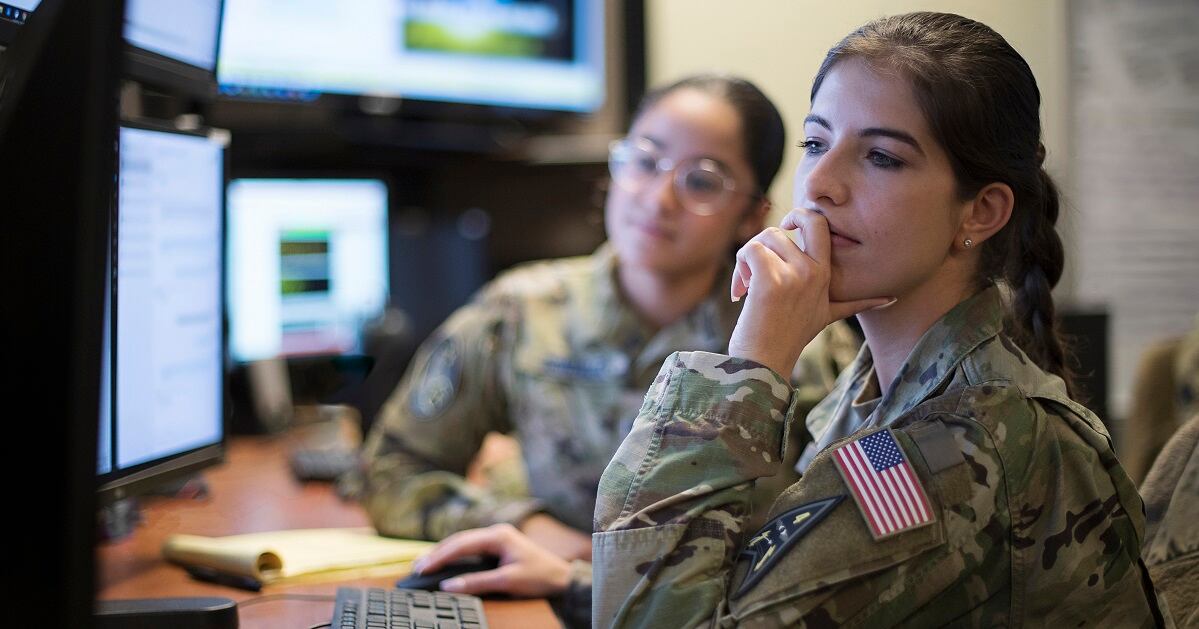
Q. What are some lessons learned from space operations over the past year?
A. On Nov. 15, 2021, Russia took out one of their own satellites and left a lot of debris. We weren’t 100% certain that they would actually go through with it. Months later, when they invaded Ukraine, that had us thinking differently about where we were going with Russia and how their actions led to certain events.
In the past, we would talk more of a whole-of-government approach. This is now really what I call more of a “whole-society” approach, where the commercial sector is providing great capability to Ukraine that allows them to communicate effectively. What role is the commercial sector going to play in a conflict with China or Russia?
We were able to talk about what Russia was doing at that moment, because the commercial partners were tracking what was happening. In the past, there might have been a challenge talking about it publicly, because of how we would have collected that information and tracked the events. Now, you can see why it’s important to have a Space Command and what we’re doing in terms of this conflict. I think that’s going to continue to play out more and more.
Q. How do you incorporate real-world threats into enlisted training as they happen?
A. I’ve tried to look at the gaps in professional military education, and then create curriculum and conversations so that I can educate my force at Space Command.
Look at how we talk about M-code, which allows us to continue to operate with the next-gen GPS if an adversary chooses to jam us. We start with understanding the threat first. We pay a lot of attention to what our adversaries can do to us, and then we talk about how we’re going to mitigate that threat. That could be through talent, or it could be through technology. Whether you’re admin or logistics, intel or ops, I need everyone to fully understand the threat and what we can do about it.
We work closely with the Space Force to make sure we’re developing the curriculum for both space warfighters and joint warfighters so that they can understand space. In a couple months, we’ll have a squadron leadership course, and I’ll spend some time with those newer officers and give them some mentorship and guidance as well.
Q. How do you think the role of enlisted troops in space operations will evolve?
A. One is how we integrate the commercial piece and how we work with the commercial sector. You have a commercial sector now that may, on a single launch, put more than 50 satellites in space at a time. That’s something that we’re going to have to effectively incorporate and understand from a space domain awareness perspective, as we track all of that.
The other thing is understanding how their actions integrate across the joint force, and that just comes with experience. In 2003, I was with 7th Marines as we crossed the line of departure into Iraq. I didn’t think about the fact that we fell under Central Command. I just did my tactical job. As we evolve our space operators, it’s really about, where do they fit into the larger picture?
Q. Why should enlisted airmen, soldiers, sailors and Marines want to come work at U.S. Space Command?
A. Given that our adversaries have conducted actions in space … we don’t have the choice to not operate in these domains. What those individuals bring, whether they’re coming from an aircraft carrier or a brigade or a squadron, is expertise in their service. Most importantly, they bring a warfighting ethos.
Space is not special. We’re going to operate just like we would in the air, land, sea and cyber, and that has to be ready.
When I got selected for this job, I thought, “Wow, a brand new command, responsibility for everything in the universe except for, literally, the Earth.” That’s an awful lot. That’s a lot of weight there. And it’s an honor to serve here.
Rachel Cohen is the editor of Air Force Times. She joined the publication as its senior reporter in March 2021. Her work has appeared in the Washington Post, the Frederick News-Post (Md.), Air and Space Forces Magazine, Inside Defense, Inside Health Policy and elsewhere.

